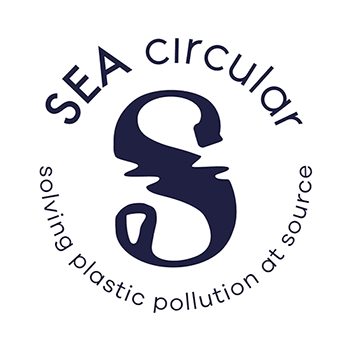
Empowering the Invisible: Integrating Informal Waste Pickers in SEA’s Circular Economy
Bangkok, 24 January 2024
SEA circular has collaborated with WWF Germany and enlisted the expertise of national and regional professionals in crafting a regional report focused on the integration of informal waste pickers into Extended Producer Responsibility (EPR) schemes. This comprehensive report aims to explore the potential design and implementation of EPR through a Human Rights-Based Approach (HRBA), with a specific emphasis on enhancing the recognition, inclusion, and integration of the informal waste sector. This sector includes informal waste pickers, waste collectors, recyclers, aggregators, waste picker associations, and other relevant entities.
The report will delve into:
- Current state of EPR development: Analyzing existing EPR policies and practices in SEA circular countries (Vietnam, Philippines, Indonesia) and their impact on the informal waste sector.
- Crucial role of informal waste pickers: Highlighting their contributions to plastic waste management and identifying current challenges to their participation in formal systems.
- Gaps and hurdles: Recognizing and addressing limitations in current approaches that hinder effective integration of the informal sector.
- Best practices and recommendations: Drawing on successful models from around the world to propose concrete steps for integrating the informal sector into EPR schemes through an HRBA lens.
To facilitate knowledge-sharing and capacity-building, workshops and a regional dialogue on this subject will be organized. These events will provide a platform to disseminate the key findings of the report and enhance the capabilities of stakeholders across all SEA circular countries. The anticipated publication date for the report is Q3 2024.
About SEA circular project
The SEA circular project – Reducing marine litter by addressing the management of the plastic value chain in Southeast Asia is implemented by the UNEP Regional Office for Asia and the Pacific and the Coordinating Body on the Seas of East Asia (COBSEA), with funding support from the Government of Sweden. SEA circular aims to reduce and prevent plastic pollution and its impact by working with governments, businesses, civil society, academia, and international partners. The initiative promotes market-based solutions and enabling policies to transform plastic value-chain management, strengthens the science base for informed decision making, creates outreach and awareness. The project leverages COBSEA’s regional mechanism to tackle the transboundary challenge of marine litter in a harmonized manner.
Contact Us
Website: www.sea-circular.org
Email: sea-circular@un.org
news
